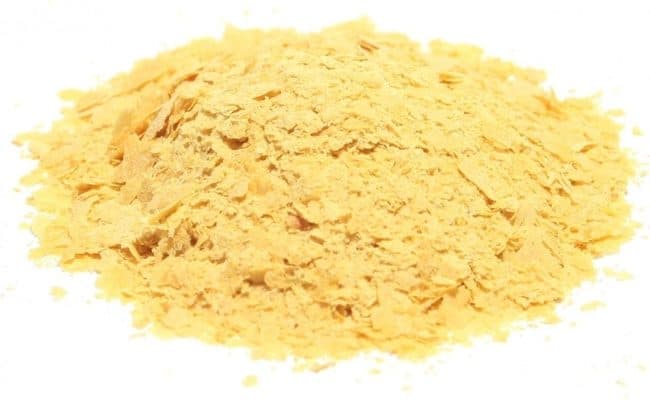
Berberine has been used for thousands of years in ancient Chinese and Native American cultures for stomach ailments, eye trouble or to fight bacterial infections. Berberine is a yellowish compound found in plants such as: goldthread, barberry or the Oregon grape. Berberine has been shown to help lower blood sugar, alter blood lipids and has been used to treat skin infections or for heart failure.
Some research studies have shown berberine does have an impact on health, but sometimes taking berberine could be harmful. Before taking any supplement to treat a health condition, speak with your doctor.
Controlling blood sugar
According to WebMD (1), taking berberine may be good for helping with diabetes. Some research has shown taking berberine can help lower blood sugar levels and work as effectively as some diabetes medications.
A 2008 study (2) looked at the efficacy of berberine or metformin in treating type 2 diabetes for 13 weeks. Researchers found that type 2 diabetics receiving berberine treatment had results identical to metformin, which is a drug used for type 2 diabetes management. Both groups had lower fasting blood glucose, insulin and hemoglobin A1C at the end of the study.
In this study, the group on berberine also had significantly lower triglyceride and cholesterol levels. While these results are promising for the use of berberine as a potential treatment for type 2 diabetes, this was a small pilot study.
More research is needed with larger sample sizes to further determine the effect of using berberine for blood sugar control.
Lowering cholesterol and triglyceride
In the 2008 study (3), researchers found berberine lowered cholesterol and triglyceride levels along with lowering blood sugar levels. Other animal studies have also shown an effect of berberine lowering blood lipids.
More studies in humans is needed to more clearly understand the relationship between berberine and its effect on cholesterol and triglyceride levels.
If berberine can help lower both blood sugar, triglycerides and cholesterol levels, that could be an advantage because people with diabetes have a higher risk of high cholesterol (4).
Having high blood sugar, triglycerides and cholesterol levels can increase the damage to blood vessels which increases risk for cardiovascular disease.
In this study, people taking metformin did not have lower cholesterol or triglyceride levels like the berberine group did.
As more research is done with humans and berberine, it can further shed light on if berberine is a healthy approach to help lower blood sugar and cholesterol levels at the same time.
Congestive heart failure
Berberine has been associated with congestive heart failure. It was thought that berberine could help with some of the symptoms of heart failure and may help the heart beat stronger, but WebMD (5) suggests there is insufficient evidence for taking berberine for heart failure.
Stomach health
Berberine has been used in Chinese tradition as a treatment for stomach ailments from treating diarrhea to stomach ulcers. Some research has shown berberine could help lower the duration of diarrhea caused from bacteria, but it was not effective against diarrhea associated with cholera (6). More research is needed to determine berberine’s role in treating diarrhea.
There are also mixed results for using berberine as a treatment for stomach ulcers. According to University of Maryland Medical Center (7), berberine has been shown in test tubes to fight candida, Giardia or parasites. However, the effect of taking berberine orally to fight these infections is not well established.
Fight cancer?
Could berberine help protect stomach cells from cancer? A 2001 Chinese study (8) found berberine significantly inhibited stomach cancer cell growth and induced cancer cell death. ZCould this have the same effect in humans?
More research is needed, but this study suggests berberine may have some cancer fighting effects as well.
Eye or skin health
Berberine is one of the main compounds in another supplement Goldenseal. Either of these can be marketed as helping with skin or eye health, but there is little research to support this.
In fact, a 2007 study (9) found that berberine in some instances may even be harmful to eye health. Researchers suggest using caution with eye drops or skin creams with berberine because it may be harmful when exposed to bright sunlight.
Safety concerns
Berberine may be effective for lowering blood sugar, cholesterol or triglycerides and may even help fight off some bacterial diarrhea. However, before you start taking berberine, speak with your doctor especially if you are taking any medication.
Berberine is generally considered safe for most adults, but if you are pregnant or breast feeding, do not take berberine (10).
If you are taking diabetic medications, berberine may interact with your medication. Since berberine lowers blood sugar, if you combine it with other medications that lower blood sugar, the result could be causing your blood sugar to go too low (11).
Berberine may interact with other medications, even some cough medications. Speak with your doctor before you take berberine if you are on any medications, other supplements or have any health issues.
Conclusion
Berberine is a main compound in some plants, such as Goldenseal or goldthread. Berberine has been used in Chinese medicine for centuries as a treatment for certain digestive disorders, and recent research suggests it may be effective for lowering blood sugar, triglycerides or cholesterol. These results from research are preliminary and warrant more research.
Berberine is suggested as ineffective for treatment for congestive heart failure, skin or eye disorders. Berberine may be helpful in treating ulcers or diarrhea, but more research is needed.
Berberine is contraindicated for pregnant or breastfeeding women, and it can have interactions with many medications. Speak with your doctor if you are wondering about taking berberine.










